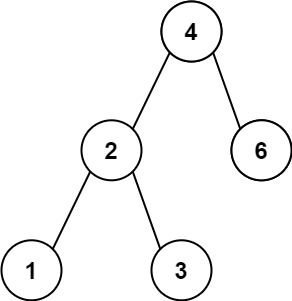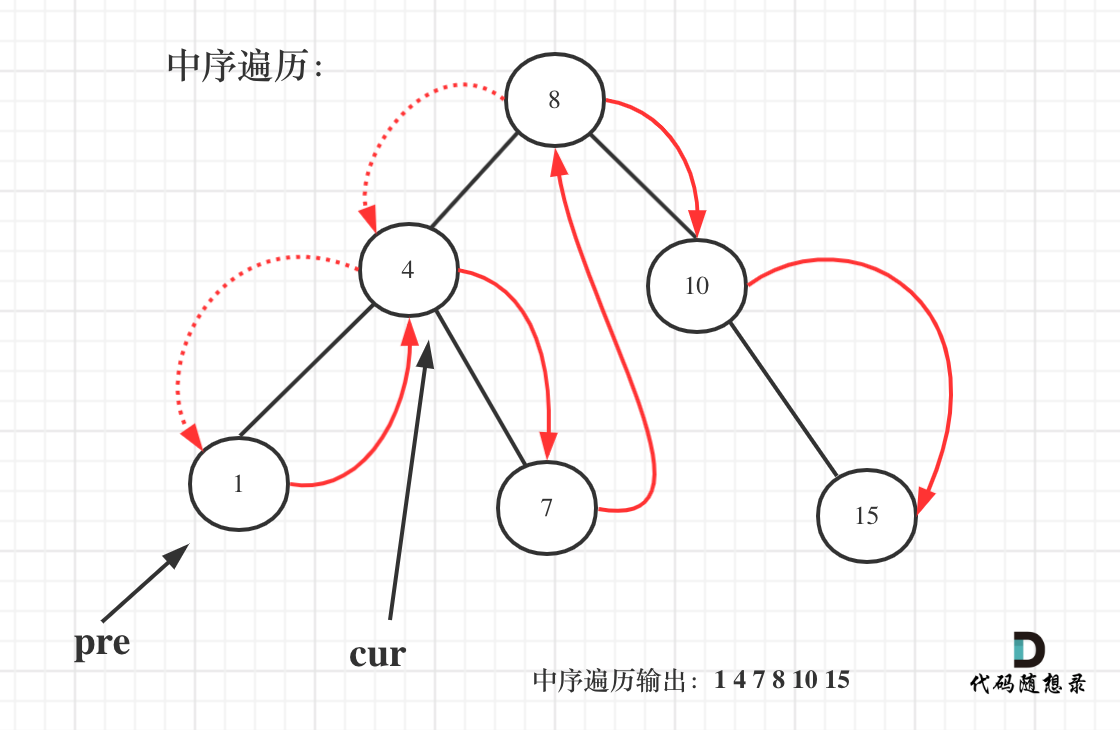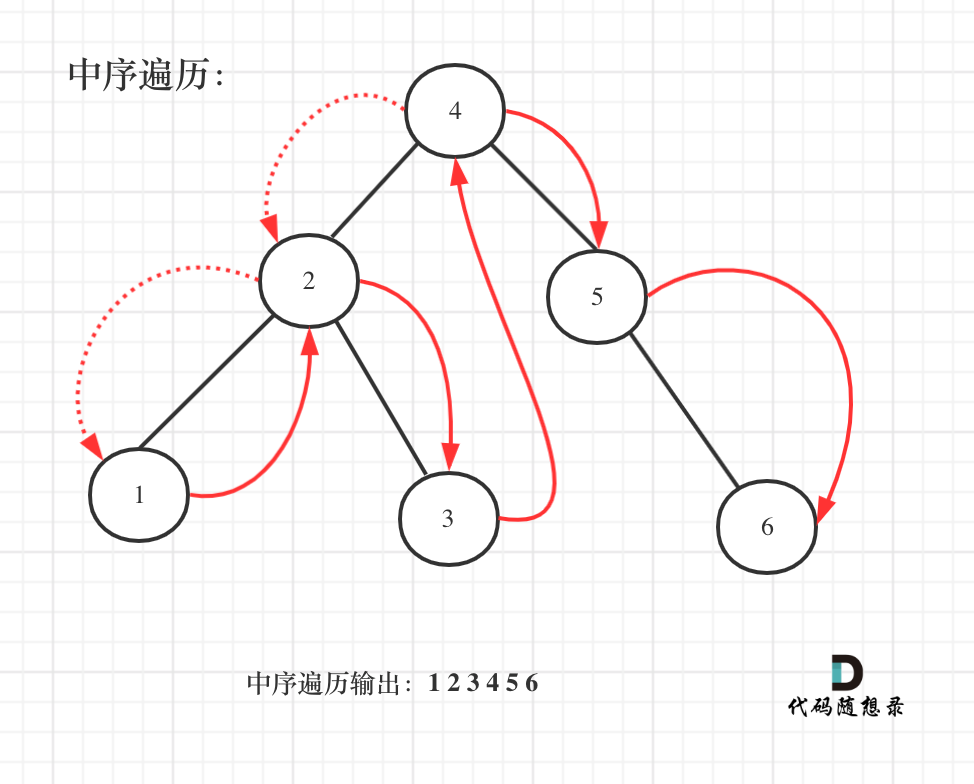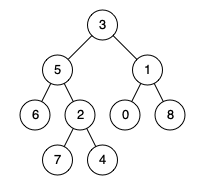530. 二叉搜索树的最小绝对差
给你一个二叉搜索树的根节点 root ,返回 树中任意两不同节点值之间的最小差值 。
差值是一个正数,其数值等于两值之差的绝对值。

class Solution {
TreeNode pre;
int result = Integer.MAX_VALUE;
public int getMinimumDifference(TreeNode root) {
if (root == null) return 0;
helper(root);
return result;
}
private void helper(TreeNode root) {
if (root == null) return;
helper(root.left);
if (pre != null) {
result = Math.min(result, root.val - pre.val);
}
pre = root;
helper(root.right);
}
}
501. 二叉搜索树中的众数
给你一个含重复值的二叉搜索树(BST)的根节点 root ,找出并返回 BST 中的所有 众数(即,出现频率最高的元素)。
如果树中有不止一个众数,可以按 任意顺序 返回。
假定 BST 满足如下定义:
- 结点左子树中所含节点的值 小于等于 当前节点的值
- 结点右子树中所含节点的值 大于等于 当前节点的值
- 左子树和右子树都是二叉搜索树

class Solution {
public int[] findMode(TreeNode root) {
Map<Integer, Integer> map = new HashMap<>();
List<Integer> list = new ArrayList<>();
if (root == null) return list.stream().mapToInt(Integer::intValue).toArray();
searchBST(root, map);
List<Map.Entry<Integer, Integer>> mapList = map.entrySet().stream().sorted((c1, c2) -> c2.getValue().compareTo(c1.getValue())).collect(Collectors.toList());
list.add(mapList.get(0).getKey());
for (int i = 1; i < mapList.size(); i++) {
if (mapList.get(i).getValue() == mapList.get(i - 1).getValue()) {
list.add(mapList.get(i).getKey());
} else {
break;
}
}
return list.stream().mapToInt(Integer::intValue).toArray();
}
void searchBST(TreeNode cur, Map<Integer, Integer> map) {
if (cur == null) return;
map.put(cur.val, map.getOrDefault(cur.val, 0) + 1);
searchBST(cur.left, map);
searchBST(cur.right, map);
}
}
236. 二叉树的最近公共祖先
给定一个二叉树, 找到该树中两个指定节点的最近公共祖先。
百度百科中最近公共祖先的定义为:“对于有根树 T 的两个节点 p、q,最近公共祖先表示为一个节点 x,满足 x 是 p、q 的祖先且 x 的深度尽可能大(一个节点也可以是它自己的祖先)。

输入:root = [3,5,1,6,2,0,8,null,null,7,4], p = 5, q = 1 输出:3 解释:节点5和节点1的最近公共祖先是节点3
class Solution {
public TreeNode lowestCommonAncestor(TreeNode root, TreeNode p, TreeNode q) {
if (root == null || root == p || root == q) {
return root;
}
TreeNode left = lowestCommonAncestor(root.left, p, q);
TreeNode right = lowestCommonAncestor(root.right, p, q);
if (left != null && right != null) return root;
return left == null ? right : left;
}
}
标签:TreeNode,随想录,二叉,搜索,return,null,root,节点 From: https://www.cnblogs.com/libertylhy/p/17238986.html